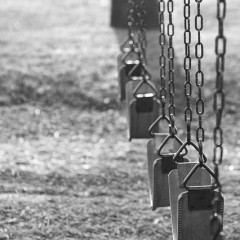As Seattle teachers are engaged in their first strike since the 1980s, one sticking point has been the amount of time the district wants devoted to recess (hint: it’s less, not more).
If you make the mistake that I’ve made and scrolled down to read the “comments” under some of the new reporting of the strike, you’ll see the typical union- and teacher-bashing, and of course, an utter lack of civil discourse or respect for divergent points of view. You’ll also see that a few commenters hone in on the idea of recess: some brand it as an add-on the union penciled in to maintain the guise that they “care about kids,” while others agree that recess is but frivolous play time…a lost opportunity to force more learnin’ into ’em.
Spend a morning in a typical elementary classroom and you’ll start to understand that recess is far from frivolous play time. If the quivering energy of a roomful of seven-year-olds could be bottled and sold, we’d never need to drill a drop of oil again.
Yet, the “play time” that recess provides is not just about getting energy out so that the kids can focus. It’s also not just about granting the teacher the rare opportunity to sit down, return parent phone calls or emails, or (if they’re bold enough) sprint to the restroom.
Pediatricians have long stood in favor of recess, for the obvious reasons related to physical and social health. However, the research is also clear: recess helps kids learn better, faster, and deeper. What it boils down to is the essential fact that the human brain is a sack of chemicals, and also the fact that the human body is designed to move, not sit. It as true in corporations where they are discovering that standing desks and walking meetings help with productivity as it is in a classroom full of first-graders. Research has revealed a cause-and-effect relationship between movement and improved cognition, as in the effects are literally immediate… learning right after physical movement resulted in better retention of content and greater focus than learning after prolonged sitting (an example).
Years ago, I read the book Spark by physician John Ratey more for my own learning about my personal exercise efforts, but like with everything a teacher does, I quickly found connections to my students and my classroom. He cited examples about how exercise chemically altered the brain, offering relief from depression, greater focus for those with attention-deficit disorders, and a counterbalance to anxiety. While not taking the step to fully claim a “miracle cure,” the known biochemistry of the brain along with the documented biochemical effects of physical movement establish a clear conclusion that it can’t hurt to adopt: more movement helps the brain function properly.
I’m no scientist, but as a teacher and as a parent of three grade-school age little boys, I see every day the importance of movement. Recess provides not only that, but also a break from rigorous cognitive focus, an opportunity to develop authentic social skills, and the break that the brain needs in order to allow new learning to “gel,” so to speak. I say that if we want kids to be more successful on whatever measures policymakers choose to impose, we should plan more recess, not less. In my reading, there even seems to be a greater correlation between movement-and-play and better learning than more sitting-and-getting and better learning.
No, preserving recess is not some post-it-note addition to the bargain the teachers in Seattle want. If they understand kids the way I do, they realize that recess is as important to learning as any other part of the school day.

I know lots of teachers who hold students in during afternoon recess for assignment completion. I try really hard not to do that. In my experience, the students who most need extra time to catch up on work are the students who most need to get outside. I make every effort to give students time during the day to get their work done.
In fact, I go one step further. Parents will tell me that they have their children do their homework the minute they get home from school. I suggest that’s not the best plan. For one thing, the kids have been at school nonstop all afternoon. They need a break. For another, we live in the north and have limited daylight after school. I recommend parents let their kids go outside and play as long as there is light. Then have them come in and do their homework. Both kids and parents thank me!
Pingback: Yes, Recess Does Matter | Stories From School #edr… | EducatorAl's Tweets